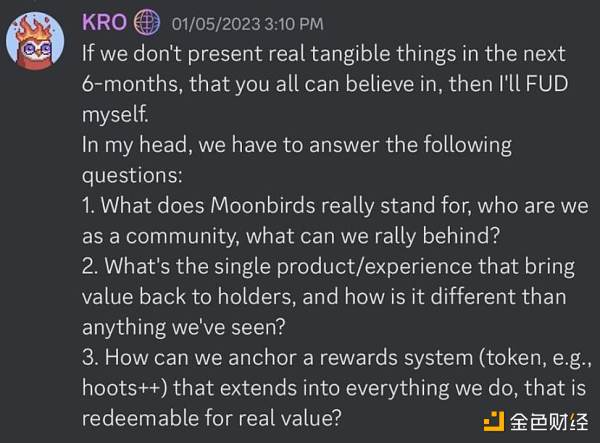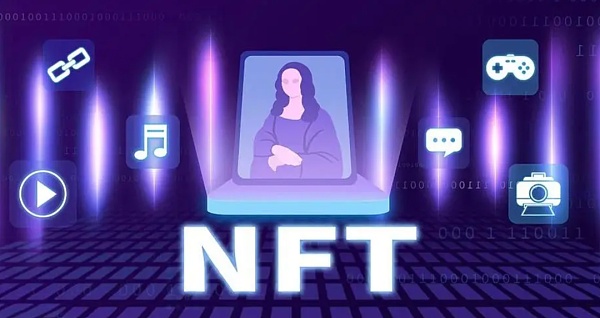Let users become the masters of personal data, how do the decentralized identity tools of companies such as Microsoft overturn traditional game rules?
Microsoft is one of the world's highest-paid software makers and is currently accelerating blockchain layout. This time, Microsoft proposed a massive blockchain program: building a decentralized identity (DID) network based on the Bitcoin network that enables all users on the Internet to control their personal data and content.

Image source: pixabay
In early May 2019, the US technology giant announced its new Azure Blockchain Service and the Azure Blockchain Development Kit based on the Ethereum blockchain. It also collaborated with Starbucks to showcase the first use case of its technology to track the entire production process of coffee from farm to paper cup.
- Babbitt Summit Thinking: Blockchain Technology Helps Digital China to Build Future Applications
- Reflections on the Chain Block Week of Hangzhou in 2019
- Editor-in-Chief | Hangzhou Block Chain Week, a feast of mobility
Decentralized identity tools: from helping refugees to opposing data centering
Microsoft's plan dates back to the summer of 2017, when Microsoft partnered with Accenture and Avanade to create a blockchain-driven database system that enables multiple parties to share the "very high confidentiality and security." Access to the same data.
The prototype runs on Microsoft's cloud platform Microsoft Azure to support the ID2020 project. ID2020 is a non-profit, public-private partnership that addresses the identification of more than 1.1 billion people worldwide. Most of these people belong to disadvantaged groups. They have no social background and therefore lack relevant file files and thus cannot participate in activities in the cultural, political, economic and social fields.
The concept of digital identity has been widely discussed as the key to solving these problems. For example, the United Nations has proposed to use this technology to assist refugees, who account for a large proportion of the illegal immigrant population. The United Nations High Commissioner for Refugees, Filippo Grandi, announced in October 2017 that:
“We hope that each refugee has a unique digital identity that will strengthen accountability, promote two-way communication between refugees and service providers, and help prevent and reduce the statelessness of refugees.”
At about the same time, Microsoft launched a prototype project to narrow the identity gap, and the technology giant became a founding member of the Decentralized Identity Foundation (DIF). Subsequently, the company continued to research in the field of decentralized digital identity, which not only benefited those who did not have an official identity, but also benefited ordinary Internet users, which is actually beneficial to everyone.
It was time to go to February 2018, and Microsoft announced more details about its distributed book-based technology (DLT) program. Specifically, the company reports that blockchain technology allows decentralized identity information to be hosted on distributed ledgers, thus allowing users to have more control over their personal data than to make "numerous Applications and services "remote this data. Ankur Patel, chief project manager for Microsoft Identity, wrote at the time:
“As data breaches and identity theft become more complex and frequent, users need a way to gain ownership of their identity. Research on decentralized storage systems, consensus protocols, blockchains, and emerging standards Later, we believe that blockchain technology and protocols are ideal for launching decentralized identity tools. […] We need a securely encrypted digital ID hub that interacts with the user's data while respecting the user's privacy and control. ”
Now, Microsoft has proposed a new, more specific concept: a DID network built on top of the Bitcoin blockchain. According to reports, the infrastructure called "Identity Overlay Network" (ION) was developed in conjunction with other DIF members to accommodate "tens of thousands of operations per second."
Essentially, ION allows users to control their own data by managing a "Public Key Infrastructure" (PKI). Daniel Buchner, senior project manager at Microsoft Identity, explains:
“Today, the most common digital identifiers we use are email addresses and usernames, which are provided to us by applications, services, and organizations. This puts identity providers in control over every digital interaction in our lives. Our goal is to create a decentralized identity ecosystem in which millions of organizations, billions of people, and countless devices can securely interact on interoperable systems based on standards and open source components."
In other words, with DID, users can control their own data and content, including login details and photos, which is currently not possible on most social media platforms that store this data on private, centralized servers. Therefore, some platforms may be skeptical about the concept of DID. According to a CoinDesk report, Facebook, which was allegedly invited to participate in the Microsoft DID project, rejected the offer, while various media reports said, "On the contrary, Facebook continues to follow its historic user data processing methods," Make money by selling data.
In addition, Charlie Smith, an analyst at asset management firm Blockforce Capital, said DIDs are immune to hacking and data breaches. In an exclusive interview with Cointelegraph, he said:
“Considering that the public blockchain is largely decentralized, the risks associated with security breaches and hacker attacks may be greatly reduced. Currently, large platforms control a large amount of personal data and have initiated centralized attacks. Suspect, making it easy for some people who are not good enough to get sensitive information."
According to Smith, the Bitcoin network has never been compromised by hackers (at least in the traditional sense), and it can serve as a valid public blockchain to hold private data. In addition, the analyst also said that the public blockchain can track users who want to access data while keeping data secure:
“Another benefit of the public blockchain is its ability to act as a ledger. Public blockchains like Bitcoin and Ethereum have extensive records of every transaction that occurs simultaneously on each network, and at the same time, these records It can't be changed. However, we can use the blockchain to easily track who is accessing personal information and when to access it. In both cases, some type of transaction occurs. The underlying technology does not need to be changed, only It needs to be implemented."
Why the defect of Bitcoin expansion is not a problem for Microsoft and other DID networks.
It's worth noting that Microsoft has had to overcome Bitcoin's much-expanded scalability issues to prepare its infrastructure for large-scale adoption.
In a blog post, Microsoft explained that Bitcoin, the "most powerful, decentralized, and most public blockchain," runs at only a dozen transactions per second, "far less than a system full of DIDs." The amount of trading required." Since the company's goal is to inherit decentralized features, it must address throughput issues in order to use a slower, time-tested blockchain. As a result, it is reported that Microsoft's new solution ensures that up to tens of thousands of operations per second can be achieved. This echoes the concept of Lightning Network, which adds another layer to the Bitcoin blockchain and performs a large number of transactions under the chain, reducing the burden on the primary network. Smith told Cointelegraph:
“Critics have always compared the transaction processing power of the Bitcoin network with Visa or Paypal. Until the establishment of the lightning network, these arguments became less powerful. The ION network will face very similar criticism, it needs to use The result is to prove its lofty goal."
In addition, Microsoft plans to work with open source contributors so that ION can be publicly released on the Bitcoin mainline in the “months to come”. At the same time, its code has been released on GitHub for everyone to review.
Microsoft's project is not the only DID program. The US technology giant's allies in the DIF community seem to be developing their own decentralized data solutions. Pelle Braendgaard, co-founder of ConsenSys's Self Sovereign Identity (SSI) solution, uPort, exclusive to Cointelegraph:
“As members of DIF, we regularly review and feedback each other's DID methods to ensure they are interoperable. At ConsenSys, we developed a variety of DID methods, the basic method is called Ethr-DID.”
According to Brandgard, although Ethr-DID and SideTree (Microsoft's blockchain second-tier protocol for ION) are "scalable," there are some differences between the two. Specifically, he believes that the de-centered identity based on SideTree "must be created by a Microsoft-hosted centralized server."
When asked if ION can be considered a completely decentralized project, Smith believes that there is some controversy, but it has all the advantages of a decentralized network. In particular, he pointed out that "the two main components of the ION network make it highly decentralized":
"The creation of this system makes it impossible for any person or entity to control the user's identity information, and its public key infrastructure is decentralized. This means that private and public key pairs are not managed by a centralized organization, the essence of which Each user is provided with secure access to their identity data. Although Microsoft is the leader of the project, their work is based on the principle that individuals can continue to control their personal information."
In addition, Brandgard said that SideTree-based decentralized identity tools can only be used in traditional applications, while other decentralized identity tools (including its own) are on blockchain and Layer 2 protocols. They are all fully usable.
Other big companies looking for DID solutions include PayPal, a global online payment company that recently invested in the startup Cambridge Blockchain. As a DIF member, Cambridge Blockchain is using blockchain to give users more control over their digital identity. The start-up CEO Matthew Commons said in an interview with Forbes.
“The future we envision is that users have more direct control over their personal data, and we are confident in an open, interoperable architecture.”
The popular encryption communication tool Telegram has also joined the DID team. Last year, the company released a personal identity authentication tool called Telegram Passport, which is reported to encrypt users' personally identifiable information, allowing users to securely share data with third parties such as "financial institutions, ICO agencies, etc."
According to Telegram's announcement, the user's ID data is currently stored on the Telegram cloud, but "in the future, all Telegram Passport data will be transferred to the decentralized cloud storage." In fact, this helps the sender of the information to improve the security of the data tool. Just a few days after the Telegram Passport was released, encryption software and services developer Virgil Security reported that it was vulnerable to violent attacks.
Will Microsoft's solution become a reality?
Microsoft's DID-related plans are ambitious. Specifically, the company's goal is to create an ecosystem that enables "billions of people and countless devices to interact securely on interoperable operating systems based on standards and open source components."
So, how likely is it that we see it all become a reality? Blockforce's Smith said in an interview with Cointelegraph:
"I can see that the ION network may eliminate the control of digital identity information by applications and platforms. I believe it may even become a universal tool. However, to achieve this, the underlying technology that empowers the network. It must always be proven that it can be successfully expanded."
Once Microsoft successfully demonstrates that its network can handle thousands of transactions and meet the requirements of scale-of-use, the data industry may be subverted. This means that large social media platforms may have to adapt to the new rules and stop processing data in a centralized, opaque manner, otherwise it will repeat Facebook's mistakes and be notorious for dealing with privacy-related issues.
We will continue to update Blocking; if you have any questions or suggestions, please contact us!
Was this article helpful?
93 out of 132 found this helpful
Related articles
- More rigorous than KYC: The Financial Action Task Force on Anti-Money Laundering will finalize new international standards for regulatory encryption companies next month.
- Talking about PoS, how can you not understand Nothing At Stake?
- The central document mentions the use of blockchains to solve food safety. Who else is in addition to BAJ?
- Interesting headlines – an unsuccessful experiment in the pre-blockchain era
- Staking is essentially an inflation, why does it create the illusion of wealth?
- Guosheng Blockchain | Consensus Conference, Hangzhou Forum Double Star shines, China and the United States lead the world blockchain trend
- In order to promote the commercialization of a larger scale, the blockchain giants of Ali, Thunder, Baidu and Jingdong changed in spring and summer.






